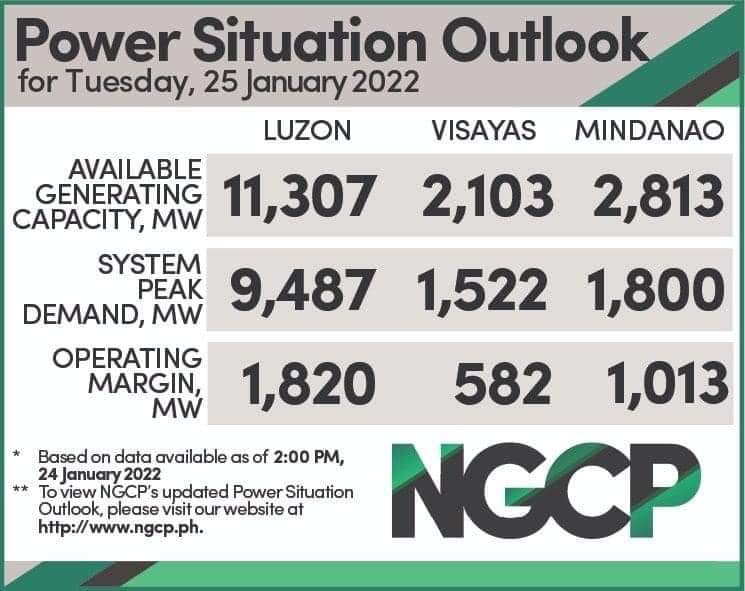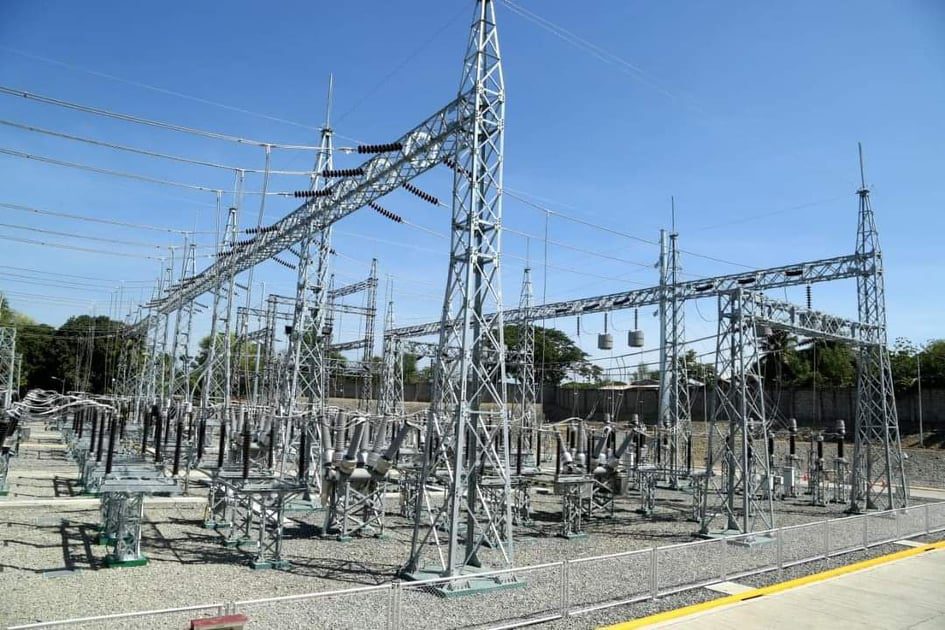MINERVA BC NEWMAN
CEBU CITY— The National Grid Corporation of the Philippines (NGCP) warns of thin power supply this summer due to higher demand in the new normal and appeals for efficient energy use and highlights the need for policies supporting demand side energy management to ensure adequate power during the upcoming presidential elections in May 2022.
In a media release from NGCP on January 23, the Department of Energy (DOE) forecasted a total peak demand of 12,387 MegaWatts (MW) for Luzon to occur in the last week of May, a 747MW increase from the actual 2021 peak load of 11,640MW that occurred on May 28, 2021.
For Visayas, the peak demand occurred in December 13, 2021 at 2,528MW from 2,252MW mainly due to the activity brought about by the holiday season, while in Mindanao, the peak demand occurred in August at 2,223MW from 2,144MW that occurred on August 4, 2021.
Thin operating margins is explained as power in excess of demand, which is used to manage and balance the grid. It is forecasted in the Luzon grid from April to June due to increase in demand during the summer, which includes the critical election period.
NGCP coordinates the preparation and submission to the DOE of an annual Grid Operating and Maintenance Program (GOMP). This is the consolidated preventive maintenance schedules of power plants in the country to manage the needed supply to meet the projected demand, NGCP explained.
“NGCP, in compliance with its mandate, coordinated with the generation and distribution sectors so that we could optimize and rationalize our own maintenance schedules, to ensure sufficiency, at least on paper, of power supply throughout the year,” the company said.
The 2022 GOMP was approved by the DOE on January 10, 2022. In compliance with the directive of the DOE, no maintenance shutdowns were scheduled during the summer months.
However, as early as January this year, some generating units extended their maintenance shutdowns while others derated to decrease their committed generation output.
As a result, yellow alerts were issued on January 10 an 11, NGCP said. A yellow alert is issued when the excess power is insufficient to meet the transmission grid’s regulating and contingency requirement, pegged at the time at about 495MW and 647MW respectively.
“On paper, there appears to be sufficient supply to meet demand; but the plan on paper, the GOMP, is not always followed. It is when there are unscheduled shutdowns and derations, and extensions of maintenance duration, that grid operations may be disrupted enough to warrant the issuance of a grid alert status,” NGCP explained.
As the transmission service provider, NGCP can only give an overview of the current supply and demand situation, and endeavor to dispatch any and all available grid resources. It cannot intervene on matters concerning power generation, NGCP stated.
A red alert status is issued when supplies are insufficient to meet consumer demand and the transmission grid’s regulating requirement.

Red alerts were issued over the Luzon Grid on May 21 and on June 1-2, 2021 when a similar round of extended and unplanned maintenance shutdowns and derations occurred, depleting excess supplies and leading to rotational power interruptions implemented across the entire Luzon, NGCP bared.
To alleviate possible power shortages, NGCP appeals to policy makers to immediately explore demand side management strategies to mitigate any possible power supply issues in the coming summer months, especially at or around the time of the presidential elections.












